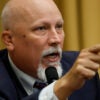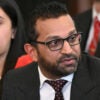Watching Europeans grapple with multiculturalism as they attempt to stem the growth of Islamist ideology at home can be instructive. It may even convince U.S. leaders of the wisdom of once again assimilating immigrants to a unique American culture and set of national principles.
In Germany, one of the most controversial aspects of multiculturalism, granting different treatment to different groups in society, has come to the fore in a bitter row over whether to exempt Muslim children from mandatory student visits to concentration camps to study the Holocaust.
The spark was lit when Klaus Steiner, a Bavarian MP from the ruling Christian Social Union (CSU), said that children from Muslim families “do not have a connection to our past” and should therefore be excluded.
Opposition politicians and even the European office of the Simon Wiesenthal Center (SWC) quickly jumped in, making the obvious case that everyone in Germany, no matter their religion, should have a solid grounding on the Holocaust. “Muslim children, too, need to come to terms with German history,” said Gunther Felbinger, a Free Voters party MP.
The SWC was more caustic. In a letter earlier this month to the Federal Education Minister Johanna Wanka, the center’s Shimon Samuels wrote:
To hear such language from a mainstream German politician reeks, at best, as Holocaust denial and, far worse, a German endorsement for such radical Islamist and Iranian intents, summed up as, ‘the Holocaust is a lie, let’s make it a reality.’
Samuels also used the occasion to denounce an upcoming 20 million euro expenditure on Centers of Islamic Theology at German universities, which he suggested may facilitate recruitment by ISIS and increase anti-Semitism, which is experiencing a recrudescence in Europe.
Supporters see the centers as an important attempt to create a “European Islam” with liberal values. Opponents, however, fear that at best they will further entrench a separate identity within Germany and at worst will be controlled by Turkey’s pro-Islamist AKP party.
AKP’s leader, Turkey’s President Recep Tayyip Erdowan, has denounced Berlin’s tepid attempts to get Turks who live in Germany to speak German as a violation of “human rights.” In 2010 he told a crowd of 10,000 Turks in Germany: “We are against assimilation. No one should be able to rip us away from our culture and civilization.”
The Education Ministry’s website on the centers does seem to stress the baleful multicultural view that separate “identities” should be stressed. It speaks, for example, about how they will assist children and youth in “developing their own identity.” It is all part of a necessary dialogue between cultures that “can help us learn more about the differences and similarities between them.”
Germany, with 4 million Muslims (5 percent of its population), at least has an assimilation strategy, even if it may be a wayward one. Spain, with around 1.8 million Muslim residents and a complex history with Islam, does not have a discernible one.
Muslim armies invaded Christian Spain in the year 711 AD, and it took centuries until the last Islamic outpost, the Kingdom of Granada, was finally overthrown in 1492 by Queen Isabella and King Ferdinand, known as the Catholic Monarchs.
Today the state does nothing to instill in immigrants any sense of “Spanishness.”
Spain does not even have an official naturalization test. Some civil registries and judges sometimes ask aliens undergoing the process to demonstrate they speak Spanish and pose cultural questions such as: “Who are the Bourbons?” (the reigning dynasty) or “What sport does Rafael Nadal play, soccer or tennis?”
Unsurprisingly, the pressure for assimilation is now in reverse: Immigrants from North Africa and other Islamic countries today sometimes insist that Islam’s history in Spain should be emphasized in schools.
The results have not been good. According to published reports, U.S. Embassy cables stolen by WikiLeaks have identified Catalonia, the region with the highest concentration of Muslims, as one of the European epicenters of radicalism. According to the report, one cable said:
“Spanish authorities tell us they fear the threat from these atomized immigrant communities prone to radicalism, but they have very little intelligence on or ability to penetrate these groups.”
Over in the U.K., Prime Minister David Cameron, himself grapping with a rise in Islamist ideology and ISIS volunteers, seems to be turning more toward what used to be the American model. In a speech last month to his National Security Council, the Prime Minister said the U.K. would move beyond simply standing “neutral between different values.” Such neutralism, he noted:
… helped foster a narrative of extremism and grievance. This government will conclusively turn the page on this failed approach. As the party of one nation, we will govern as one nation, and bring our country together. That means actively promoting certain values. Freedom of speech. Freedom of worship. Democracy. The rule of law. Equal rights regardless of race, gender or sexuality.
America, a “creedal nation” in the sense that citizenship is based on attachment to the principles enumerated in America’s founding documents, has traditionally had an easier time assimilating people to its way of life. European societies have had very little need to develop an assimilationist culture because, unlike in the United States, it is very hard, if not impossible, to really become Spanish, Italian or Austrian—an identity one has to inherit from ancestors. Now, with large immigrant population and the threat of terrorism, this has become a problem.
Alas, increasingly—especially over the last six years—the U.S. has turned away from confidently asserting its values. A recent strategy paper by President Obama’s Task Force on New Americans had nothing close to Cameron’s American assertiveness. It does not even include the word “assimilation.”
Hopefully, the example of the Old World can make the new one reconsider its errors.































